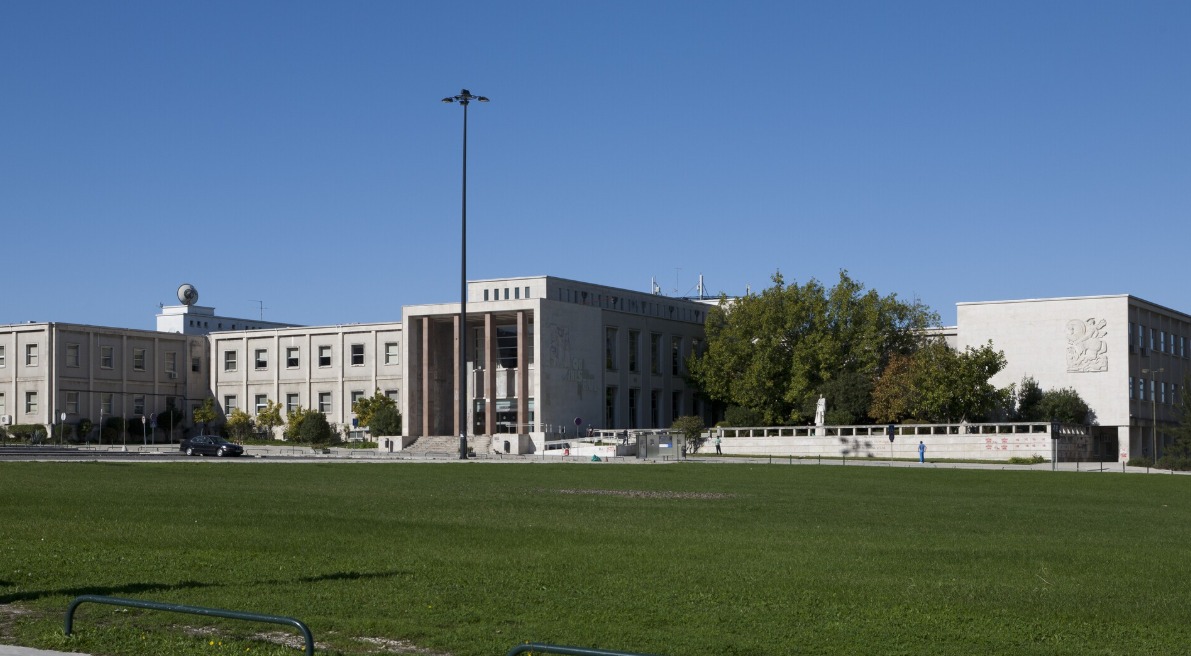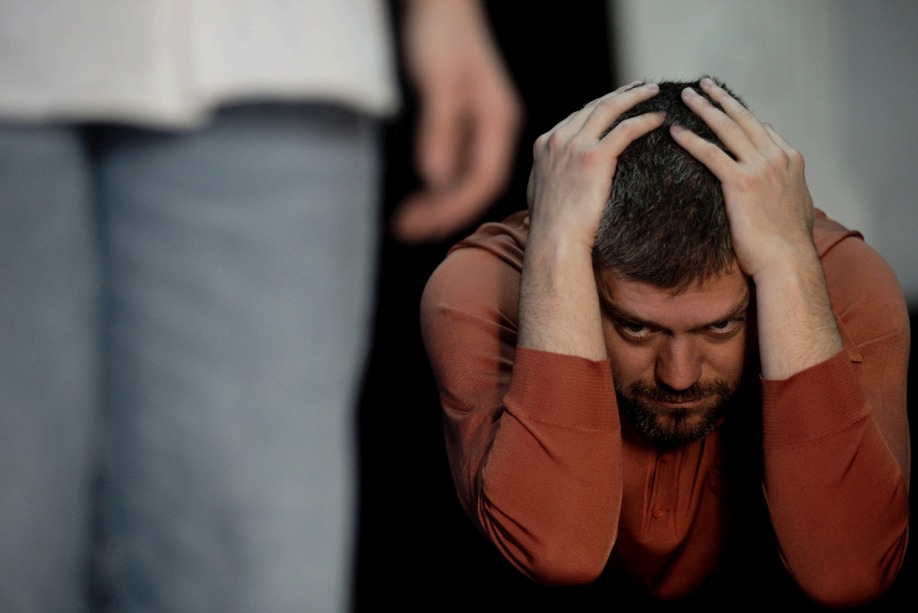Anthology without time

The story is already old – and maybe it’s worth going to shred the tape out of time. Shortly after the turn of the decade, Ricardo Marques elaborates, in 2021, a kind of balance of what had been done in poetry, from 2010 to date, in a small anthology that gave the name of You can no longer be modern: six poets now. As in the things of poetry, as in the rest of the literature, the critical effort has been replaced by a symbolic economy where the places of dissemination and advertising, such as the cultural supplements or well -intentioned efforts, of undoubtedly friendly people such as Raquel Marinho, the only news that came from this anthology was two very critical texts, in this newspaper, the only attempt to date was the only attempt to Balance of what was being done in poetry for a decade (apparently honor being granted, there was no other). Friendly person – a poet, by the way, quite subtle – said that there were something excessive in these two texts, which raised a critical battery, somewhere between the argument ad hominem It is a certain haughtiness and pretentiousness, too devastating to an unpretentious object. At the time, it was responded at the time Irônica and true, that what moves us is a certain unconditional love to what remains unnameable in the term « poetry », a drive on the margins of the unnatural that makes us the minimum event, a passion without purpose, open to all betrayals, which still makes us discuss a poem, a book, an author, hours on the restaurant or coffee. All of this is anacronic, with pretensions to the untimely, refers to another age and others, numerous, geographies – arguing heirs who try to occupy a place that is not, has never been and never will be theirs and who, at the limit, want no place.
What was said to be against this anthology of Ricardo Marques? In short, that there was an error of evaluation by him, that the end of poetic groups and the disappearance of the very idea of generation does not necessarily lead to a « boiling poetic scene. » All the analysis of Ricardo Marques came, as it is easily perceived, in a deeply modern and completely wrong way to face the history of poetry, where each generation destroyed the previous one and each group struggled with the group next door (it is all much more complicated than that), making it, in fact, the very title of ambiguous anthology (no longer modern). Moreover, the atomization of the poetic field and the disappearance or loss of legitimacy of classic forms of mediation (criticism in newspapers, the university or even the figure of the editor) had as a result a spraying of names that may actually correspond to a market logic where the atomized consumer implodes on himself and their particular interests.
In the new magazine number Lightning – A magazine with a quality ballast that is in danger – we found the same kind of gesture and the same kind of problems that were already in the previous anthology. Let’s start with the title, which is already significant in how the poetry relationship in time thinks. This is not the first time that Lightning Try to take the pulse to what happens in the field of poetry. In 2003, through a set of tests from various critics (with the title New Portuguese poetry) or in a curious number, in 2013 (with the title The state of poetry), where the answer regarding the « state » was left to a set of poets and where the critical effort was even invested from a rejection of its own question (just read Miguel-Manso’s testimony in this number, even if full of that banal pose of disaffection that every poet, currently, gives).
In fact, an interesting exercise, before looking more carefully to the anthology itself, is to see the answer given by the poets to the questions that, it is assumed, were directed by Ricardo Marques-and which come after the poems chosen to appear in the anthology. One of these questions (“What do you think will be poetry in the future?”) It is so inane and meaningless that it is not even perceived as this set of pure poets simply did not refuse to respond. Question worthy of the writing and thought protocols of the most typical Portuguese journalism, it could be varied from it, showing its absolute empty: “What do you think will be the evolution of the economy in the future?”, “What do you think will be the variation of the exchange rate in the future?”, “What do you think will be parliamentary representation in the future?”, Etc., etc. Another is: “How do you see the reception and reading of poetry in the present?”) oscillates between any banality that could be said by any median Portuguese politician, a lyricism now in unsubmissive tone (such as Raquel Nobre War) sometimes worthy of a senior university, and answers that alternate between common and void places from which one can withdraw everything and something else. Francisca Camelo, for example, states that today’s poetry deals with two things: « body and love. » The body is a series of things and love, it seems, is the “impossibility of embracing it.” And so his testimony ends: « If I had to escape a fire, I would save only the last love poem I wrote. » There is no point of irony throughout the text-it could, if it were the case, to give it an ambiguity dose-so it would easily appear in an anthology of a senior university from any Portuguese village or parish. Álvaro Seiça and Ricardo Tiago Moura respond with poems (an intelligent way to steal to the question), Catarina Nunes de Almeida is limited to the commonplace of the exchange of favors between poets and critics, Anda C. Faria sees the reception and reading the poetry as being “fragmented and a little autistic”-does not explain why the diagnosis-but no problem is always going to “hikes. more fertile, ”Inês Francisco Jacob thinks we should“ return to poetry his audience ” – you feel like asking: what audience? -Miguel-Manso seems to blame the digital of something that is not well perceived well, Tatiana Faia does not seem to care much about the questions because, soon after stating that Portuguese poetry “is made by and for a small community of readers”, begins to talk about the poems that matters to him, Cáudia R. Sampaio, merit is granted, gives humorous answers (“a hipster cafe with a smell to the avocado but naperons at the tables ”is the response that gives the reception and reading of poetry) and João Pedro Moreira gives a response that is somewhere between a self -help manual and the good intentions of a deputy of a party in the center of the political spectrum. It is worth it, by the way, to quote the answer in its entirety:
“As a poetry reader, I am looking for a refuge against the noisy occupation of the imaginary by the present, on the other the desire for communion with other voices, and the hope that resonates with me, be amplified in me, and reveal me parts of my being. I believe there is, and will continue to be, readers who come to poetry moved by the same reasons as I, and that the intensification of life and constant rhythms and the rhythms of life and constant Technological interconnectivity will only make the poetry more necessary, both refuge and protest ”
Against this philistade speech, full of goodwill, you feel like repeating something similar to what Hannah Arendt says: poetry – and not just poetry – speaks of much more interesting things than a supposed subject enrichment and does not need to be reduced to a branch of popular psychology.
Let us return, however, to the anthology. Why does the choice of the term “now” in the title instead of other terms (current, contemporary, etc.)? Ricardo Marques’ argument is exactly this heterogeneity of contemporary poetic proposals:
“I start by finding the weakness of the term“ generation ”when applied to the poets I will deal with here, because it does not seem identifiable to a programmatic and aesthetic unit that can characterize them, as it will be clearer throughout the article”
It follows that we have today (not everything that is done « now » is necessarily current and not everything that is currently done « now »), contemporary and others – the contemporary is the untimely, would say Barthes – become inexha each other to characterize « now » poetry. The big problem, in this way of understanding the poetic phenomenon, is that it loses any reference to the present time (the « now » is the kingdom of indistinct and indistinct). See, by the way, the title that Ricardo Marques gives his article: generation crisis (or Portuguese poetry now), arising, and in the same movement, suspending, the terms “crisis” and “now” with a trace over it, making the title double: crisis (or Portuguese poetry). There is a stranger and paradoxical historicism behind this game that Ricardo Marques makes with the title. In fact, by losing the relationship with the term “generation”, poetry “now”, not emerging after anything or anyone (then refusing the modern game), is not historicizable, that is, subject to being subsumed in a history of poetry where one generation follows another, one group to another, the presence below, the neo-realism following the presence, the next to the neo-realism, The group of the cartridge following poetry 61. However, while losing the historical rooting, poetry of “now” is historical, as it enters the universal “poetry” and the book, is not written, is deposited in the pantheon of the “history of poetry”.
This indifferentiation that derives from the choice of the term “now”, and establishes the kingdom of n’importe quoi It is visible in the second form of the title: crisis (or Portuguese poetry). By making the crisis equivalent to poetry itself, making the first one another name of the second, as if poetry was constantly in crisis, what Ricardo Marques does is make everything indifferent – and shrugging. The “now” crisis is certainly different from the crisis twenty years ago – but it is equally crisis; Therefore, there is nothing actually new in time (neither in ours nor in twenty years) and, from crisis to crisis, poetry is doing equal to what was twenty, thirty, forty years. It is a strangely deshstoricized story: what happens in the order of time has no consequence as to poetry itself, which remains imprisonable and reigns beyond any event. See, by the way, a consequence of this in the organizer’s words:
« When I speak of crisis, however, I do not refer to the heterogeneity of proposals that this period has shown, a true shatter scene, as it has not been for decades. I speak above all the conditions of production, circulation and reception of new poetry, hampered by various factors, which emphasizes the prolonged lack of criticism. »
This descendering story is visible in the disjunction that Ricardo Marques establishes, on the one hand, the “shatter scene, as it was not for decades” (for decades we had, in the same decade, Ruy Belo, Herberto and Jorge de Sena, António Franco Alexandre and João Miguel Fernandes Jorge, Gastão Cruz and Luíza Neto Jorge). As part of an immunity of poetry to history, it is not going through the minds of Ricardo Marques that the “conditions of circulation” – smaller and low -dignified phenomena – can have quite relevant consequences for poetry itself – perhaps Ricardo Marques is not modern sufficiently and forgot the Baudelaire lesson.
THE n’importe quoi Established by the SEMPITORIAL KINGDOM OF “NOW” has consequences in the very choice of anthology poets. Except for subjective reasons as “impactful” – word, in fact, quite ugly – there is nothing to make these poets distinguish from others who do not appear in the anthology. They are not representative, because there is nothing to represent when the only thing that exists is a meaningless spraying that cannot be ordered (when atomization reigns, the subject becomes sovereign and equivalent). They will be, at most, examples, that is, do not distinguish themselves from any other, being exactly their indistinction that isolates them before the others (such as the grammatical example, when a word is isolated only and only because it is equal to all other words). It is the kingdom of universal equivalence – which, in other contexts, has another name: merchandise.







